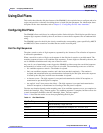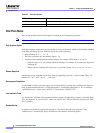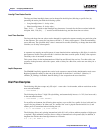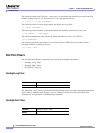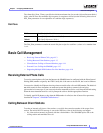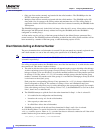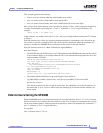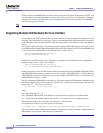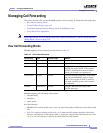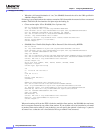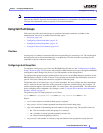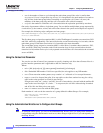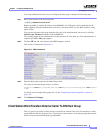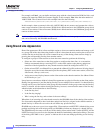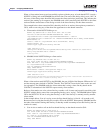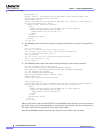
4-17
Linksys SPA9000 Administrator Guide
Document Version 3.01
Chapter 4 Configuring SPA9000 Features
Managing Call Forwarding
Managing Call Forwarding
This section describes the way the SPA9000 manages call forwarding. It includes the following topics:
• How Call Forwarding Works
• Using Call Hunt Groups, page 4-19
• Client Station Blind Transfers External Caller To DID/Hunt Group
• Using Shared Line Appearance
Note Some improvements in call forwarding have been introduced in Release 5.1 that are described in the
“Bridge Mode” section on page 4-32.
How Call Forwarding Works
SPA9000 supports the call forward scenarios listed in Table 4-2.
SPA9000 supports call forward by client station:
• unconditionally
• when busy
• on no answer
Note the following:
• SPA9000 does not distinguish cases (1) and (2), which only makes a difference at the client station
side.
• Case (3) is simply a delayed version of (1) or (2) where the 302 response from the called client
station is received after a 180 response (that is, ringing has started at the called station). For cases
(1) or (2), the 302 response is typically received before any 180 response.
Table 4-2 Call Forward Scenarios
Called Party Caller Forward Target Remarks
Client station Client station Client station Proxy only; no direct involvement
Client station Client station External Very similar to calling external number
Client station External Client station ACKs the 302 from called party. Then
INVITEs the target. NOTE: If the original
INVITE is forked to more than one client
station, call forward is not performed.
Client station External External ACKs the 302 from called party. Sends 200 to
caller, then blind REFERs caller to target.
NOTE: If the original INVITE is forked to
more than one client station, call forward is
not performed
External Client station External ACKs the 302 from called party, then
INVITEs the target



